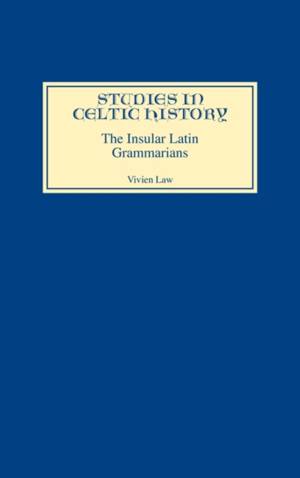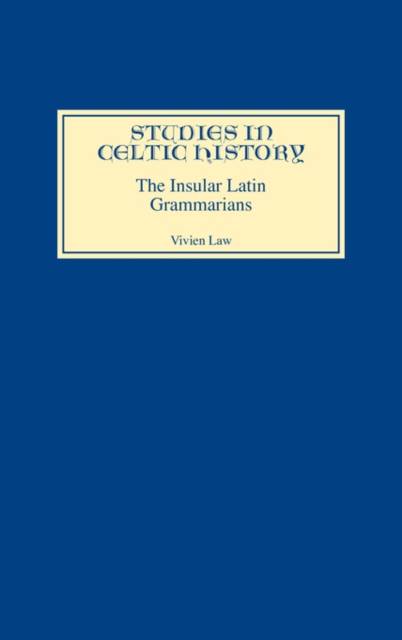
Je cadeautjes zeker op tijd in huis hebben voor de feestdagen? Kom langs in onze winkels en vind het perfecte geschenk!
- Afhalen na 1 uur in een winkel met voorraad
- Gratis thuislevering in België vanaf € 30
- Ruim aanbod met 7 miljoen producten
Je cadeautjes zeker op tijd in huis hebben voor de feestdagen? Kom langs in onze winkels en vind het perfecte geschenk!
- Afhalen na 1 uur in een winkel met voorraad
- Gratis thuislevering in België vanaf € 30
- Ruim aanbod met 7 miljoen producten
Zoeken
€ 177,45
+ 354 punten
Omschrijving
The adaptation of Late Latin grammars from the schools of the Roman Empire for use in a foreign Christian society culminated in the British Isles in the 7th and 8th centuries in the development of two distinct types of grammar designed respectively for elementary and for more advanced students. These works, whether they take the form of elaborate commentaries on the classical grammarians, or of simple collections of paradigms, reflect the reading and intellectual preoccupations of their authors, the first teachers in the West to face the problem of large-scale formal foreign-language teaching. The influence of the Insular grammarians extended far beyond their own time: their works, taken to the Continent by Irish and Anglo-Saxon missionaries, shaped both the latinity and the pedagogical technique of their pupils the Carolingians, and their influencein foreign-language teaching has persisted until our own time.
Specificaties
Betrokkenen
- Auteur(s):
- Uitgeverij:
Inhoud
- Aantal bladzijden:
- 145
- Taal:
- Engels
- Reeks:
- Reeksnummer:
- nr. 3
Eigenschappen
- Productcode (EAN):
- 9780851151472
- Verschijningsdatum:
- 28/10/1982
- Uitvoering:
- Hardcover
- Formaat:
- Genaaid
- Afmetingen:
- 156 mm x 234 mm
- Gewicht:
- 381 g

Alleen bij Standaard Boekhandel
+ 354 punten op je klantenkaart van Standaard Boekhandel
Beoordelingen
We publiceren alleen reviews die voldoen aan de voorwaarden voor reviews. Bekijk onze voorwaarden voor reviews.









